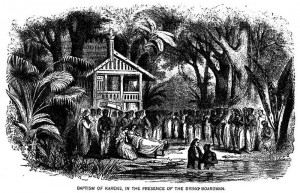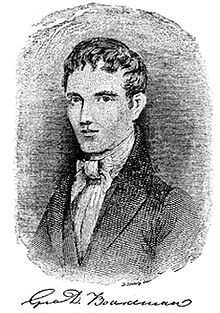There has been a fair amount of press about a study released in October by the Pew Forum on Religion and Public Life. That study has found that the number of people who are religiously unaffiliated in the United States is almost 20%, up from 16% just five years ago and up from 7% in 1972.
Does this mean that the United States is get more secular?
Maybe, maybe not. It depends on what you mean by “secular.” And we still need more data. (Academics talk this way sometimes. I’m an academic. Sorry about that).
At first glance, the poll seems to be a straight-forward indicate that the percentage of non-religious Americans is steadily growing, and with that trend, Christians are shrinking in size.
But we have to qualify this assessment.
It is important to note that the poll is based on how Americans identify themselves. This is important because all through American history, there have been sizeable numbers of Americans who identified themselves as Christians, but actually did not behave in any way that would indicate they were people of regular religious commitments. In the 1950s, for instance, a decade that many consider to be a religious era, many Americans identified themselves as Christians but never or rarely attended church. In one poll from the 1950s, six out of seven Americans said they believed the Bible was divinely inspired word of God, but over half could not name even one of the four gospels of the New Testament. So it goes for every other era in American history, all the way back to the colonial era. I can give you evidence from every decade since 1610 showing have a sizable number of Americans who rarely, if ever, attended church. Regular church attendance may never have exceeded 40% in American history and probably was at about 30% in the years before the Civil War, a level that is pretty close to what it is today.
This should not surprise evangelicals who reflect on this matter. Evangelicals (as well as many other Christian groups) historically have understood Christianity to involve much more than simply declaring that one is a Christian. Commitment, discipleship, and a transforming encounter with Christ matter. That is why American evangelicals have always evangelized other Americans who call themselves Christian.
The Pew study, then, may simply indicate that Americans who never attend church or display any other sort of faith commitment are much more likely to call themselves religiously unaffiliated. They used to call themselves Christian. So the recent trend may simply be a more honest assessment of a dynamic that has always existed.
There is one part of the poll that requires more careful consideration, though. The percentage of religiously unaffiliated is highest (32%) among those who are under the age of thirty.
This might mean that we will have a higher number of Americans who are secular in upcoming years. What we do know is that younger people today (including those who profess Christianity) have much weaker to institutions of any kind. They are far more individualistic than older Americans and are much less likely to make long-term commitments. They pose a very real challenge to the church.
And yet, we also don’t know exactly how these trends will play out as these young adults get older. Just because they are religiously unaffiliated now does not necessarily mean they will be religiously unaffiliated in the future, though it might. Marriages among Americans in their 20s are dropping (another indication of their individualism and reluctance to commit to institutions) but many of these young people fully intend to get married (and do get married) as they get older and “settle down.” Will they also be more likely to make commitments to religious institutions?
We will have to see.






